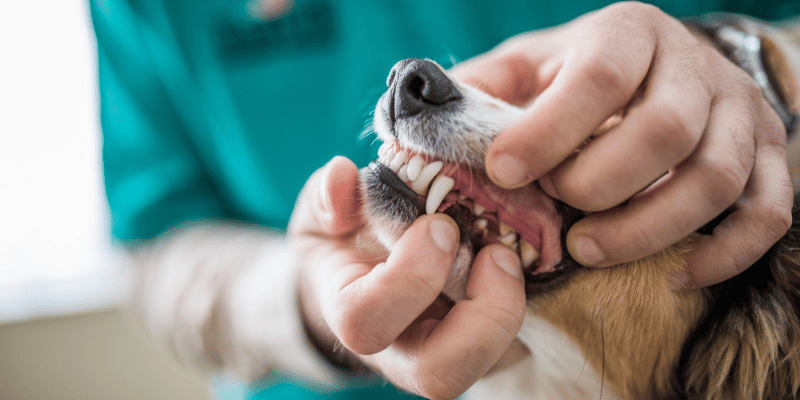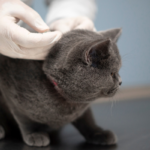Do you know why staying on top of your pet’s dental hygiene is so important?
Without regular, effective cleaning measures, your pet’s teeth will naturally accumulate plaque, a sticky bacteria-laden film. After just a few days, untreated plaque starts to harden to a firmly adhered brown coating known as tartar, which can then begin causing gum inflammation, known as gingivitis.
The good news? Gingivitis is reversible with prompt dental care. The bad news? If left untreated, gingivitis will progress to periodontal disease, involving inflammation, infection, and permanent damage to the jawbone and the periodontal ligament (the tissue that connects teeth to the jaw).
Significant periodontal disease is painful and necessitates treatment with tooth extractions, which we’re sure most pet parents would prefer to avoid! Additionally, untreated dental disease can release bacteria into your pet’s bloodstream, affecting the health of other organs in the body.
The bottom line? Good dental health is a critical aspect of supporting your pet’s general health and quality of life. So, here are our team’s top tips on how to keep your pet smiling with good home dental care and professional veterinary dental services.
1. Home dental hygiene maintenance
t’s recommended that you start regular dental hygiene maintenance for your pet as early as possible—either when it is a pup or as soon as it has healed after a recent dental procedure. This proactive approach will help to slow the build-up of tartar and progressive dental inflammation.
Depending on your pet’s temperament and general health, we might recommend a variety of home care options, including:
- training your pet to have their teeth brushed once daily with a soft toothbrush and pet-safe toothpaste (or water)
- daily dental chews (preferably with VOHC – Veterinary Oral Health Council – accreditation)
- prescription dental diets, fed daily
2. Veterinary care
Even humans brushing their teeth twice daily are recommended to have a professional dental check (and a clean, if required) every 6-12 months to prevent the development of periodontal disease. Therefore, it stands to reason that the average pet will benefit from a dental check-up at least every 12 months, which can be done as part of their annual check-up and vaccination visit. If a pet is found to have a significant level of tartar, gingivitis, or periodontal disease, our team will recommend a veterinary dental procedure.
Pets with mild dental disease will benefit from a simple scale and polish, which is done under general anaesthetic to allow a thorough check and clean above and below the gum line. Potentially, dental X-rays will also be taken to check the health of the tooth roots.
Putting off regular dental cleanings leaves your pet at a much higher risk for developing painful periodontal disease and irreversible tooth damage, which can, unfortunately, end up costing significantly more in required dental extractions. However, rest assured that if your pet does require extractions, they will receive thorough pain relief during and after the procedure to minimise their discomfort. Additionally, pets are usually noticeably more comfortable after the removal of any problem teeth.
For more information on maintaining your pet’s healthiest pearly whites, we’d recommend booking them in for a dental assessment ASAP. Don’t let untreated dental disease come back to bite you and your pet!





